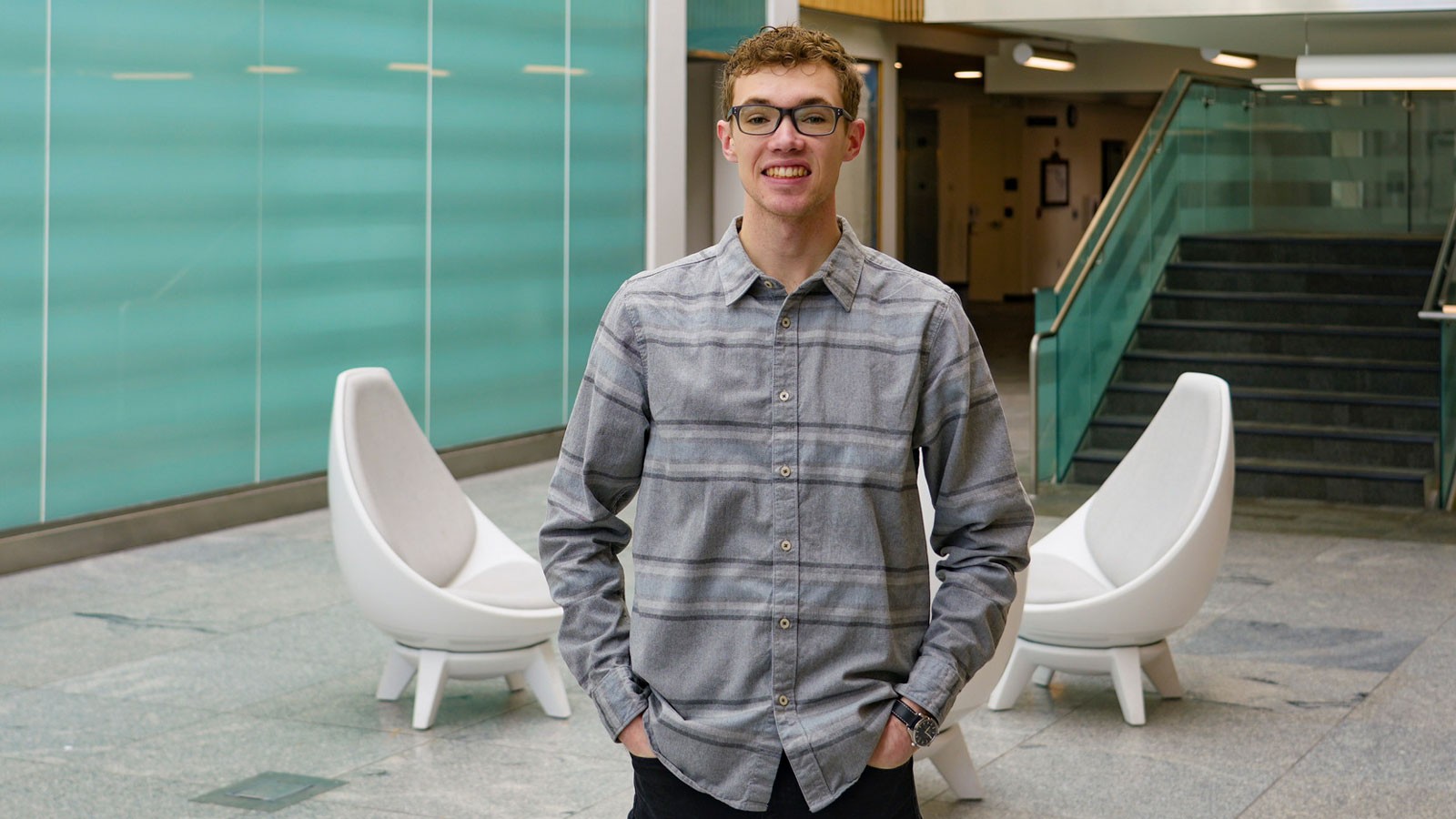Future Optometry Student Finds Success With USU Technology Systems Degree
By Shelby Ruud Jarman |
Joseph Weaver
A trip to the eye doctor cemented Joseph Weaver’s career goals: he was going to become an optometrist.
He was only in high school, but he knew this future career would be a great fit, blending his natural affinity for science and his desire to help people one-on-one. Having a solid career goal before starting college was a huge benefit to Weaver, allowing him to make the most of his time at Utah State University.
“I’ve always been motivated to research my options and be prepared, and I think that’s what helped me be successful,” he said.
Many students who pursue health care postgraduate degrees get an undergraduate degree in biology or biochemistry. But after one semester of biology, Weaver knew it wasn’t the right fit for him and began to explore other options.
“I wanted to stand out,” Weaver said. “I knew optometry schools would see a lot of biology majors applying to their schools, and I thought doing something different could give me a leg up.”
He soon discovered the technology systems degree, part of the Department of Technology, Design and Technical Education in the College of Agriculture and Applied Sciences. Though this degree isn’t typical for someone pursuing a pre-health path, Weaver knew he could benefit from the STEM subjects, technical skills and course flexibility offered in the program.
“Interestingly, students pursuing degrees outside the hard sciences have become increasingly more common,” said Yvonne Kobe, a USU pre-health adviser who worked closely with Weaver to help him achieve his goals. “There are many niches in the world of health care, which means that these providers must come from a variety of content backgrounds in order to fill the need. I am pretty sure I could name an application in medicine for every degree program we offer.”
The technology systems degree afforded Weaver the flexibility to take all the required pre-health classes he needed as well as some other classes that interested him, like finance and business courses.
“Our program has seven different emphasis areas, which allows us to customize courses toward students desired skills and career goals,” said Lisa Hunsaker, an adviser in the Department of Technology, Design and Technical Education who also worked closely with Weaver. “We have 30 technical elective credits that we can customize to help students gain the skills and understanding for their desired careers.”
Weaver’s emphasis was technical management, which incorporates business, economics, management, financing, and ethics along with STEM subjects and technical skills.
Other students who get a technology systems degree pursue varied careers such as project manager, engineer technician, industrial designer, marketing strategist, IT support and many others.
Between the flexibility of the technology systems degree and taking courses one summer semester, Weaver was able to graduate a full year earlier than he would have been able to if he had followed a more traditional pre-health route.
Throughout his time as a college student, Weaver took initiative and planned ahead, frequently meeting with his advisers to ensure he was on track for graduation. He was a member of the A-Team and an involved leader on campus. He also job shadowed optometrists on top of his rigorous course schedule to learn more about the profession.
That experience, along with the unique path of a technology systems degree, set Weaver apart on his optometry school application.
“I only had to apply to one school, and I was accepted to my top choice,” he said. “Having a plan and knowing what kind of school I wanted to go to made the application process a lot easier.”
This fall, Weaver will be attending the Southern College of Optometry in Memphis, Tennessee, a top-rated school and the only one in the nation that focuses solely on optometry. It has the highest percentage of graduates passing the optometry board exams and offers great scholarship opportunities that Weaver will benefit from.
“Everyone at the Southern College of Optometry was so friendly, helpful, and down-to-earth,” Weaver said. “That’s big. I thought to myself, it’s going to be the best four years of my life, going to school with people like that.”
Weaver plans to own his own optometry clinic, and the varied classes he took as a technology systems major will help him out in that regard.
“The technology systems degree, my advisers, and everyone in the College of Agriculture and Applied Sciences really helped me out,” Weaver said. “They were flexible with me and showed me which classes to take to fill all the requirements.”
Weaver is always recommending the technology systems degree and encouraging other students to make the most of their academic experience at Utah State University.
“Don’t settle for what you think is just good enough, search for something great,” he said. “Prepare yourself and you can find it. Being prepared and knowing years ago what I wanted to do has set me up for where I am now.”
For more information about technology systems and other versatile degrees offered by the USU College of Agriculture and Applied Sciences, visit the college’s website.
WRITER
Shelby Ruud Jarman
Writer
College of Agriculture and Applied Sciences
208-705-2282
shelby.ruud@usu.edu
CONTACT
Lisa Hunsaker
Academic Adviser
College of Agriculture & Applied Sciences
435-797-0851
lisa.hunsaker@usu.edu
TOPICS
Health 308stories Student Success 298stories STEM 161stories Technology 139storiesComments and questions regarding this article may be directed to the contact person listed on this page.







